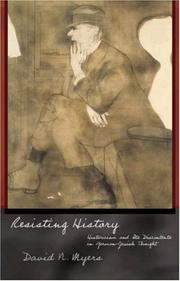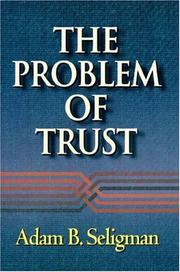| Listing 1 - 8 of 8 |
Sort by
|
Book
Abstract | Keywords | Export | Availability | Bookmark
 Loading...
Loading...Choose an application
- Reference Manager
- EndNote
- RefWorks (Direct export to RefWorks)
Book
ISBN: 3901232230 9783901232237 Year: 2001 Volume: 176 Publisher: Wien: Phoibos,
Abstract | Keywords | Export | Availability | Bookmark
 Loading...
Loading...Choose an application
- Reference Manager
- EndNote
- RefWorks (Direct export to RefWorks)
Schatz, Otto Rudolf --- Schatz, Otto Rudolf, --- Painting --- Exhibitions --- Schatz, Otto Rudolf, - 1900- - Exhibitions --- Schatz, Otto Rudolf, - 1900 --- -Painting --- -Schatz, Otto Rudolf, - 1900 --- -Schatz, Otto Rudolf, - 1900-
Book
Year: 1970 Publisher: Bern ; München : Francke,
Abstract | Keywords | Export | Availability | Bookmark
 Loading...
Loading...Choose an application
- Reference Manager
- EndNote
- RefWorks (Direct export to RefWorks)
Language and languages --- Religious aspects. --- Otto, Rudolf,
Book
Year: 1948 Publisher: Tübingen : Mohr,
Abstract | Keywords | Export | Availability | Bookmark
 Loading...
Loading...Choose an application
- Reference Manager
- EndNote
- RefWorks (Direct export to RefWorks)
Das Heilige (Otto).
---
Religion.
---
Sacré, Le.
---
Otto, Rudolf

ISBN: 3110167999 1306276292 3110816865 3111752992 9783110816860 9783110167993 9783111752990 9783110167993 9783111752990 Year: 2000 Volume: 293 Publisher: Berlin New York
Abstract | Keywords | Export | Availability | Bookmark
 Loading...
Loading...Choose an application
- Reference Manager
- EndNote
- RefWorks (Direct export to RefWorks)
The author traces the development of Rudolf Otto's attempt to construct a normative science of religion. This should respond to concerns facing Protestant theologians in Germany at the turn of the century. Moreover, he examines the reception of Otto's ideas after World War One. The volume contains name and subject indexes.
Religious studies --- Otto, Rudolf --- Religion --- Philosophy --- History --- 2 OTTO, RUDOLF --- -Religion, Primitive --- Atheism --- God --- Irreligion --- Religions --- Theology --- Godsdienst. Theologie--OTTO, RUDOLF --- -History --- -Otto, Rudolf --- -Contributions in philosophy of religion --- -Godsdienst. Theologie--OTTO, RUDOLF --- 2 OTTO, RUDOLF Godsdienst. Theologie--OTTO, RUDOLF --- Otto, Rudolf, --- Otto, Karl Ludwig Rudolf --- Ūtū, Rūdulf, --- اُتو، رودلف, --- Contributions in philosophy of religion --- 20th century --- Otto, Rudolf, - 1869-1937 - Contributions in philosophy of religion. --- Religion - Philosophy - History - 20th century.
Book
ISBN: 3110310961 9783110310962 311031097X 9783110310979 3110310872 9783110310870 9781306205450 130620545X Year: 2014 Publisher: Berlin De Gruyter
Abstract | Keywords | Export | Availability | Bookmark
 Loading...
Loading...Choose an application
- Reference Manager
- EndNote
- RefWorks (Direct export to RefWorks)
Rudolf Otto grounded his concept of religion in the experience of the sacred. His perspective offered and continues to offer a major impetus for contemporary debates in theology, the philosophy of religion, religious aesthetics, and religious studies. This volume documents important insights from contemporary readings of Otto in an international perspective.

ISBN: 0691115931 0691146608 140083256X Year: 2003 Publisher: Princeton (N.J.): Princeton university press
Abstract | Keywords | Export | Availability | Bookmark
 Loading...
Loading...Choose an application
- Reference Manager
- EndNote
- RefWorks (Direct export to RefWorks)
Nineteenth-century European thought, especially in Germany, was increasingly dominated by a new historicist impulse to situate every event, person, or text in its particular context. At odds with the transcendent claims of philosophy and--more significantly--theology, historicism came to be attacked by its critics for reducing human experience to a series of disconnected moments, each of which was the product of decidedly mundane, rather than sacred, origins. By the late nineteenth century and into the Weimar period, historicism was seen by many as a grinding force that corroded social values and was emblematic of modern society's gravest ills. Resisting History examines the backlash against historicism, focusing on four major Jewish thinkers. David Myers situates these thinkers in proximity to leading Protestant thinkers of the time, but argues that German Jews and Christians shared a complex cultural and discursive world best understood in terms of exchange and adaptation rather than influence.After examining the growing dominance of the new historicist thinking in the nineteenth century, the book analyzes the critical responses of Hermann Cohen, Franz Rosenzweig, Leo Strauss, and Isaac Breuer. For this fascinating and diverse quartet of thinkers, historicism posed a stark challenge to the ongoing vitality of Judaism in the modern world. And yet, as they set out to dilute or eliminate its destructive tendencies, these thinkers often made recourse to the very tools and methods of historicism. In doing so, they demonstrated the utter inescapability of historicism in modern culture, whether approached from a Christian or Jewish perspective.
Historicism --- Jewish learning and scholarship --- Judaism --- History --- Historiography --- Breuer, Isaac, --- Cohen, Hermann, --- Rosenzweig, Franz, --- Strauss, Leo. --- History. --- Historiography. --- Agudat Yisrael. --- Balfour Declaration. --- Benjamin, Walter. --- Breuer, Salomon. --- Cassirer, Ernst. --- Conservative Revolution. --- Davos conference. --- Denominationalism. --- Dilthey, Wilhelm. --- Ehrenfreund, Jacques. --- Enlightenment. --- Erets Yisrael. --- Fischer, Kuno. --- Frankfurt am Main. --- Funkenstein, Amos. --- Geiger, Abraham. --- Geisteswissenschaft. --- Guttmann, Julius. --- Hegelianism. --- Heidegger, Martin. --- Jewish nation. --- Jewishness. --- Kassel. --- Kellerman, Benzion. --- Kierkegaard, Søren. --- Kulturprotestantismus. --- Lazarus, Moritz. --- Luther, Martin. --- Marr, Wilhelm. --- Meinecke, Friedrich. --- Naturwissenschaft. --- Neue Kusari. --- Nordau, Max. --- Otto, Rudolf. --- Rabbinic Judaism. --- Revelation. --- Rosenheim, Jacob. --- Scholem, Gershom. --- Uganda proposal. --- anti-historicism. --- assimilation. --- biblical prophets. --- communitarianism. --- conversion to Christianity. --- cultural bifocality. --- ecclesiastical history. --- historical Jesus movement. --- historicism. --- philosophy. --- positivism. --- post-structuralism. --- systematic theology.

ISBN: 0691050201 0691012423 1400822378 1400813360 9780691050201 9780691012421 1400807247 Year: 1997 Publisher: Princeton (N.J.): Princeton university press,
Abstract | Keywords | Export | Availability | Bookmark
 Loading...
Loading...Choose an application
- Reference Manager
- EndNote
- RefWorks (Direct export to RefWorks)
The problem of trust in social relationships was central to the emergence of the modern form of civil society and much discussed by social and political philosophers of the early modern period. Over the past few years, in response to the profound changes associated with postmodernity, trust has returned to the attention of political scientists, sociologists, economists, and public policy analysts. In this sequel to his widely admired book, The Idea of Civil Society, Adam Seligman analyzes trust as a fundamental issue of our present social relationships. Setting his discussion in historical and intellectual context, Seligman asks whether trust--which many contemporary critics, from Robert Putnam through Francis Fukuyama, identify as essential in creating a cohesive society--can continue to serve this vital role.Seligman traverses a wide range of examples, from the minutiae of everyday manners to central problems of political and economic life, showing throughout how civility and trust are being displaced in contemporary life by new "external' system constraints inimical to the development of trust. Disturbingly, Seligman shows that trust is losing its unifying power precisely because the individual, long assumed to be the ultimate repository of rights and values, is being reduced to a sum of group identities and an abstract matrix of rules. The irony for Seligman is that, in becoming postmodern, we seem to be moving backward to a premodern condition in which group sanctions rather than trust are the basis of group life.
Political sociology --- Political systems --- Social psychology --- #SBIB:35H501 --- 316.47.052 --- Bestuur en samenleving: netwerken, inspraak, participatie, interactief beleid --- Vertrouwen in sociale relaties --- 316.47.052 Vertrouwen in sociale relaties --- Social role --- Role, Social --- Social interaction. --- Trust. --- Social role. --- Social interaction --- Trust --- Human interaction --- Interaction, Social --- Symbolic interaction --- Trust (Psychology) --- Social status --- Exchange theory (Sociology) --- Psychology --- Attitude (Psychology) --- Emotions --- Agape. --- Appadurai, Arjun, "ed. --- Arendt, Hannah. --- Axial chasm. --- Banfield, Edward. --- Benhabib, Seyla. --- Bernstein, Basil. --- Boden, Deirdre. --- Bynum, Caroline. --- Calvinism. --- Cambridge Platonists. --- Catholicism. --- Christianity. --- Constant, Benjamin. --- Diderot, Denis, "ed. --- Douglas, Mary. --- Durkheim, Emile. --- Elias, Norbert. --- Frankfurt, Harry. --- Ghana, Frafas people of. --- Grief, Avner. --- Harrison, Bernard, "ed. --- Herman, Gabriel. --- Kahneman, Daniel. --- Lasch, Christopher. --- Macfarlane, Alan. --- Maza, Sarah. --- Merton, Robert. --- Otto, Rudolf. --- Protestantism. --- Puritanism. --- asceticism. --- associational life. --- baptism, private. --- capitalism. --- citizenship. --- civility. --- communitarianism. --- confidence. --- contract law. --- credit, symbolic. --- divorce. --- expectation, trust as. --- externality. --- familiarity. --- friendship. --- game theory. --- honor. --- incivisme. --- marriage. --- networks, of trust. --- postmodernity. --- Rol social. --- Interacción social. --- Interaction sociale --- Role (Sociology) --- Confiance --- Rôle social
| Listing 1 - 8 of 8 |
Sort by
|

 Search
Search Feedback
Feedback About UniCat
About UniCat  Help
Help News
News